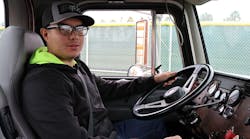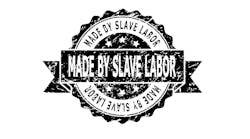As was expected, a number of states are now seriously considering following the radical step taken by California when it enacted a new law that largely eliminates independent contractor status in that state.
At the same time, the 2018 California State Supreme Court decision that first established these extreme limitations on contractor status and was codified by the new law the change has been held to be retroactive in certain matters for up to four years before it was handed down in 2018.
In addition, three rideshare companies in the state have launched a public referendum campaign seeking to remove their industry from the jurisdiction of the new state law.
As it stands today, companies that have used independent contractors may now be subject to potential exposure for wage and hour claims going back four years from the April 2018 California State Supreme Court decision because by the Ninth Circuit U.S. Court of Appeals has upheld its retroactivity. However, excluded from this retroactive judgment are all other types of claims that do not arise from Wage Orders that are applied under California wage and hour laws.
That is not the case with the new state law, which is scheduled to go into effect on Jan. 1. In addition to codifying the state supreme court decision restricting the definition of an independent contractor, the legislation also contains a provision making it applicable retroactively to all kinds of existing claims and actions – not just wage and hour claims based on state law.
Called AB 5, the law includes a three-part “ABC” test for assessing independent contractor status. What makes California’s test different from other states that have adopted three-pronged criteria that are also called ABC tests, is that one of its prongs requires that no one can be deemed a contractor who is in the same line of business as the company they do work for.
As a result, as of Jan. 1 truck owner-operators will no longer be considered independent contractors if the lease themselves and their equipment to truck companies, although their status as such has been a hallmark of the American trucking industry since the first days of its founding in the early 20th Century.
As we have noted before, other states are taking a hard look at the possibility of following California’s example, and in some of them, similar changes now seem inevitable.
On Nov. 7 a bill was introduced in the New Jersey legislature that would adopt a version of California’s ABC test for determining independent contractor classification. Its middle prong says workers can be considered contractors only if they render a service is either outside the usual course of the business for which it is performed, or the service is performed outside of all the places of business of the enterprise for which it is performed.
There are signs indicating that New York also plans to consider a California-style ABC test in 2020. The state Senate recently held a public hearing on the matter and legislative leaders reportedly are doing research lining up proposals that will be introduced in early 2020. Democrat State Senator Diane Savino has been quoted saying that “California has gone forward, but we’re going to have to be even stronger than California.”
Chomping at the Bit
Governor Andrew Cuomo (D) already has thrown his support behind such a measure, and even admitted to a certain amount of jealousy that California passed an ABC test law before New York could, stating that what California did with AB 5 got his “competitive juices flowing,” according to Melissa Camire, an attorney with the law firm of Fisher Phillips.
Organized labor already is on board. “Building on the historic success of our brothers and sisters in California, here in New York State we will not rest until app workers are afforded the same rights as other hardworking men and women, including the ability to join together to form a union,” said Mario Cilento, president of the New York State AFL-CIO.
In Illinois, another strong union state, Rep. Will Guzzardi is preparing a similar measure for the upcoming legislative session. “As independent contractors without many rights, people can be mistreated," Guzzardi told a local reporter. “It's an abuse that needs to be regulated."
Guzzardi said tech, rideshare and Web design workers are among those who could benefit most from his legislation, along with home health care workers who are considered independent contractors under federal labor law. However, at this point, he has yet to sign up co-sponsors for his legislation.
In Wisconsin. the governor’s task force at the Department of Workforce Development wants to tighten restrictions on gig businesses on the state and is considering development of legislation mirroring California’s new law, at least as far as rideshare drivers are concerned.
Both Oregon and Washington State considered similar legislation in their 2019 sessions but both bills failed to advance. “They could see renewed momentum in 2020 considering what happened in California,” says Fisher Phillips attorney Richard R. Meneghello.
At the same time, rideshare and home delivery companies in California are looking forward to 2020 when they can begin gathering signatures for a petition to put on the ballot a limited repeal of AB 5. This is intended to make use of the state’s ability to mount referenda like the famous Proposition 13 for bypassing lawmakers to go straight to their constituents.
If enacted, the proposal would include certain driver protections that Uber earlier this year offered California legislators if they had agreed to exclude its drivers from AB 5. These include minimum earnings guarantees with expense reimbursement, a healthcare subsidy, and liability and accident insurance coverage.
“A new law jeopardizes the freedom of hundreds of thousands of Californians to choose to work as independent contractors with app-based rideshare and delivery network platforms, and threatens the availability of these on-demand services that millions of Californians rely on daily,” the organizers say. “This ballot measure protects worker flexibility, improves the quality of on-demand work by establishing historic new earnings and benefit guarantees and protects public safety and consumer choice.”
In just the first 72 hours after it was announced, organizers reported that 13,491 California app-based rideshare and delivery drivers have signed up in support of the campaign. However, the ballot initiative sponsors – right now just Uber, Lyft and DoorDash -- face a daunting task. In order to qualify for the November 2020 ballot, they need to collect about 650,000 signatures by June 2020.
Given that the scope of the initiative is limited to these companies’ app-based drivers, it also may be questionable whether others in the state who will suffer because of the application of AB 5 will feel impelled to offer their support.




